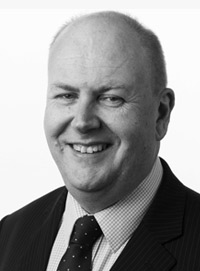Comment / It's good to talk
 Tony Whitfield’s appearance on Radio Four’s Costing the NHS was the first time the HFMA has engaged in such a high-profile way with the media for years. Readers may recall our most famous foray onto the front pages in 1999, when an HFMA survey of the financial position revealed to a very bright-eyed and bushy-tailed new Labour government that the NHS was in financial crisis. While the HFMA’s stock rose with media commentators, including Private Eye, there was a noticeable impact on relations with the centre. Whereas previously HFMA had been invited in to talk about all manner of things, we were frozen out of the policymaking process. So what has changed?
Tony Whitfield’s appearance on Radio Four’s Costing the NHS was the first time the HFMA has engaged in such a high-profile way with the media for years. Readers may recall our most famous foray onto the front pages in 1999, when an HFMA survey of the financial position revealed to a very bright-eyed and bushy-tailed new Labour government that the NHS was in financial crisis. While the HFMA’s stock rose with media commentators, including Private Eye, there was a noticeable impact on relations with the centre. Whereas previously HFMA had been invited in to talk about all manner of things, we were frozen out of the policymaking process. So what has changed?
In the intervening years, we have discussed our influencing strategy many times. Over the last decade, as we have built the brand and financial strength of the organisation, we have being recognised as solid, dependable commentators on a wide range of issues. Take payment by results: we have consistently been seen by the Department of Health and now Monitor as a critical friend, cautioning on some changes, pointing out discrepancies and generally offering a real-world view of proposals. As such, our PBR Special Interest Group has become an unofficial meeting place for these parties, where ideas can be exchanged in a confidential forum. This is the case with several other groups, where we offer calm, constructive and professional criticism of key issues.
Naturally, we don’t want to lose the influence we have behind closed doors, and we have no intention of doing so. But the transformation challenge demands that healthcare professionals engage with the public – explaining options and the reasons for service change where needed.
We also want to say more on issues close to our hearts. That’s why we have invested in marketing and communications.
First, there’s PR – speaking on TV, radio or in newsprint. Many will know that we have been active for some time in newsprint. We continue to do so, not only in the pages of this magazine, but also in other specialist health and finance periodicals. I must thank Chris Calkin who, entirely voluntarily, provides regular news comment to different outlets. We want to continue to do that and to take up more File on Four-type opportunities. The key difference now is that, with the right infrastructure, staff employed and a professional PR agency, we are able to have a little more control over what we say and do.
Second, there are our various communication media. Expect to see a refreshed magazine and website next year as we look to update our media offering mainly targeted at professional finance staff. I am keen for us to develop our website and make it a compelling place to visit. We have increasing amounts going on in the association and want to give you easy access to that while continuing to flag up the key news, guidance and announcements that are crucial to your professional lives.
Finally, there is the area of new media and what the HFMA is saying on Twitter, LinkedIn and Facebook. We don’t see Facebook as our medium, but we will aim to tweet more and provide more content on LinkedIn. So can we expect the HFMA to say more? Yes, definitely. But it will only be professional comment, and it will only be supportive of the NHS, which we regard as crucial in all our dealings with the media.
Related content
This event is for those that will benefit from an overview of costing in the NHS or those new to costing and will cover why we cost and the processes.
Mindset and the neuroscience of leadership - Lunch and Learn